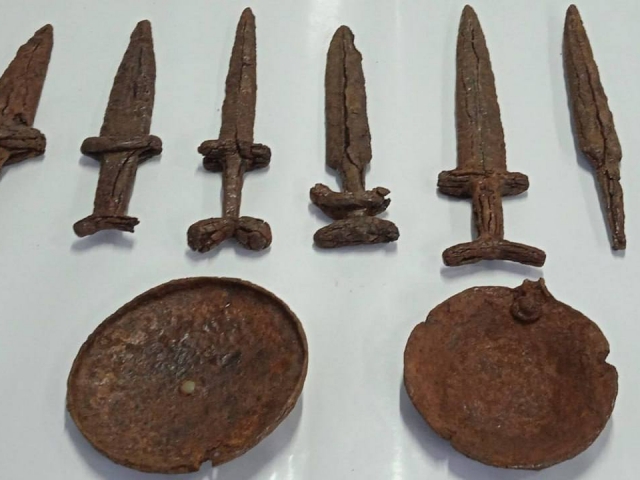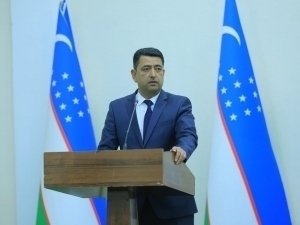Oldest metal weapons in Central Asia discovered in Bukhara
Local
−
17 January 2025 8408 2 minutes
Archaeological excavations at the Poykent site in the Karakul district of Bukhara region have uncovered weapons dating back to the 1st century BC and 1st-4th centuries AD. The discovery was reported by the Center for Islamic Civilization.
The excavation revealed not only ancient weapons but also metal utensils, bells, and censers used in temple ceremonies. These items, which belong to the era of the Sakas and Massagetae, offer a glimpse into the region’s rich history. The findings date back to the 1st century BC and the 1st century AD.
“Restorers are currently working to restore these objects to their original state. This process is highly complex and demands significant expertise. These artifacts are also depicted in wall paintings from the Sogdian period,” the report noted. The discoveries, which attract both scholarly and tourist interest, offer valuable insights into the ancient history of the region.
In addition to the artifacts, researchers also uncovered pedestals around a large hall or courtyard measuring 13.7 meters in length. This area, dating back to the 3rd-4th centuries, was located below a neighboring temple. A 12-step staircase and a 3.4-meter-wide ramp led down to it from the north.
Poykent, located in the Karakul district, is often referred to by medieval historians as the "City of Merchants" or "Copper City," underscoring its historical significance. Notably, Poykent predates even Bukhara in its establishment.
In a related discovery, last November, archaeologists found the remains of two medieval cities in the mountains of southeastern Uzbekistan, further enriching the understanding of the region’s ancient civilizations.
Live
All




